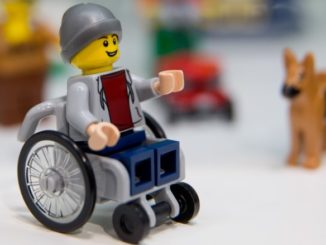
When growing up in my happy loving family, I was surrounded by family related by blood and family related by friendship. My parents’ close friends are all amazing people, I grew up with creative, intelligent and inspiring people around me. Some of those wonderful people happened to also be gay. This to me, meant the same at aged three as it does to me now as a 20 year old. All it means to me, is its dictionary definition “An example of gay is a man who is attracted to other men.” I never had to learn what being gay or lesbian meant as I grew up knowing. And this is my hope for the future.
In August 2012 I was blessed enough to attend the wedding of someone I would consider an uncle. Kevin, a wonderful, sweet man, was lucky enough to find an equally sweet man who loved him back and so naturally they got married, or as married as the country would allow them. The celebration they had to mark the occasion was as good, if not far better that any straight wedding I had been to. The venue was gorgeous, the guests were great craic,and Irish songstress Lisa Hannigan sang beautifully.
Everyone was emotional and overwhelmed by the love that these two shared. This was the perfect wedding. It seems criminal to me, therefore, that there are people in Ireland who have an issue with this scenario. Plainly and simply, two great people fell in love and got married. Or at least that would be the story had they been a straight couple. Instead the two entered into a civil partnership. While the cynics among us might ask “if they can get a civil partnership why do they need to get married” the allies among us stand up and say that there is a reason it is called the marriage equality referendum. Why should people who love each other have a different name for their partnership just because they are the same gender?
I asked Kevin what his final plea for a yes vote would be “I pay tax just like any other Irish citizen,” he said “I have a mortgage, just like any other Irish citizen. I shop in, Tesco, Aldi, Dunnes, Supervalue and Lidl just like any other citizen. I love my partner and yet I am not like any other citizen in this country because I cannot marry the person I love. I am the same as you, but with conditions, and that is not equal.”
DCU, thankfully, has been a great place to be coming up to the referendum, with 93 per cent of students supporting marriage equality. We are thankfully living in a generation where the vast majority of students want equal rights. To think that our generations children will not be subjected to, nor partaking in the prejudice that many faced before them is truly heart-warming.
However, while this is the majority, there are still people who cannot make sense of why two people who are in love would have the right to get married.
I asked DCU students what they would say to anyone who still isn’t sure. While some answers were as simple as “Love is love and people are people and that’s all that matters” and “It’s for our future generation” another said “This may not be affecting you directly but this could affect your friends and family. Your argument may be that you don’t know anyone gay, but you might just not know that they are gay yet.”
As a straight woman, in a wonderful relationship, I can only imagine the pain and frustration inequality must cause the LGBT community. As grateful as I am that the referendum is nearly upon us, my frustration lies with the idea of a referendum in the first place. If a straight man and a straight woman who are in love decide to get married one of their biggest issues is who to invite. Imagine however, before they could even consider inviting guests, choosing a venue, or finding a dress, a man and a woman who are in love, must ask the population of Ireland if they think it’s okay first. This is what gay and lesbian people all over Ireland must do before they can get married. As ridiculous and upsetting as this actually sounds, the wrong result would be a thousand times worse.
The population of Ireland do not know how well an individual couple works or how much they love each other regardless of whether they are gay or straight. Imagine denying a group of human beings a human right, this is essentially what a no vote would mean.
Megan Roantree




Leave a Reply